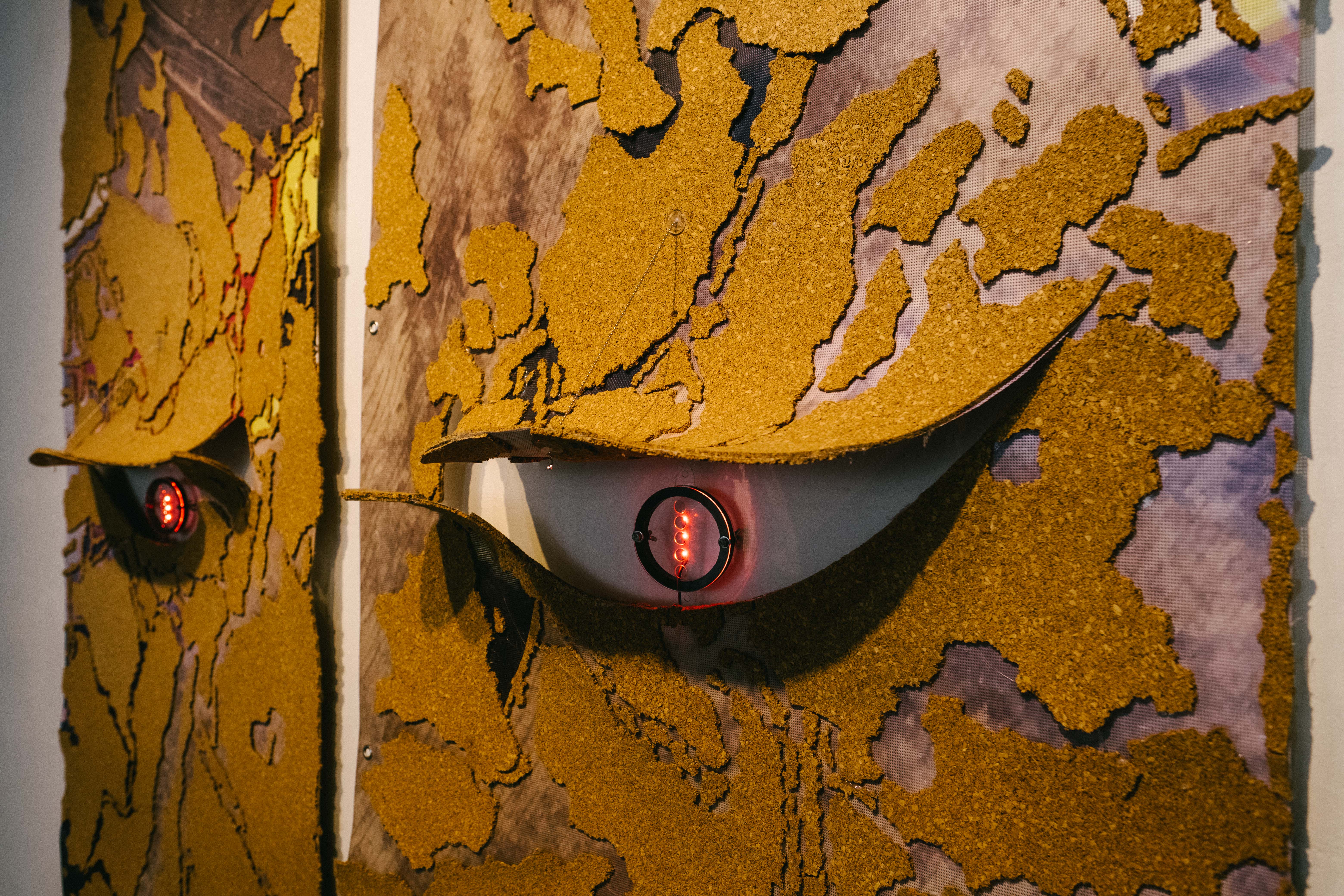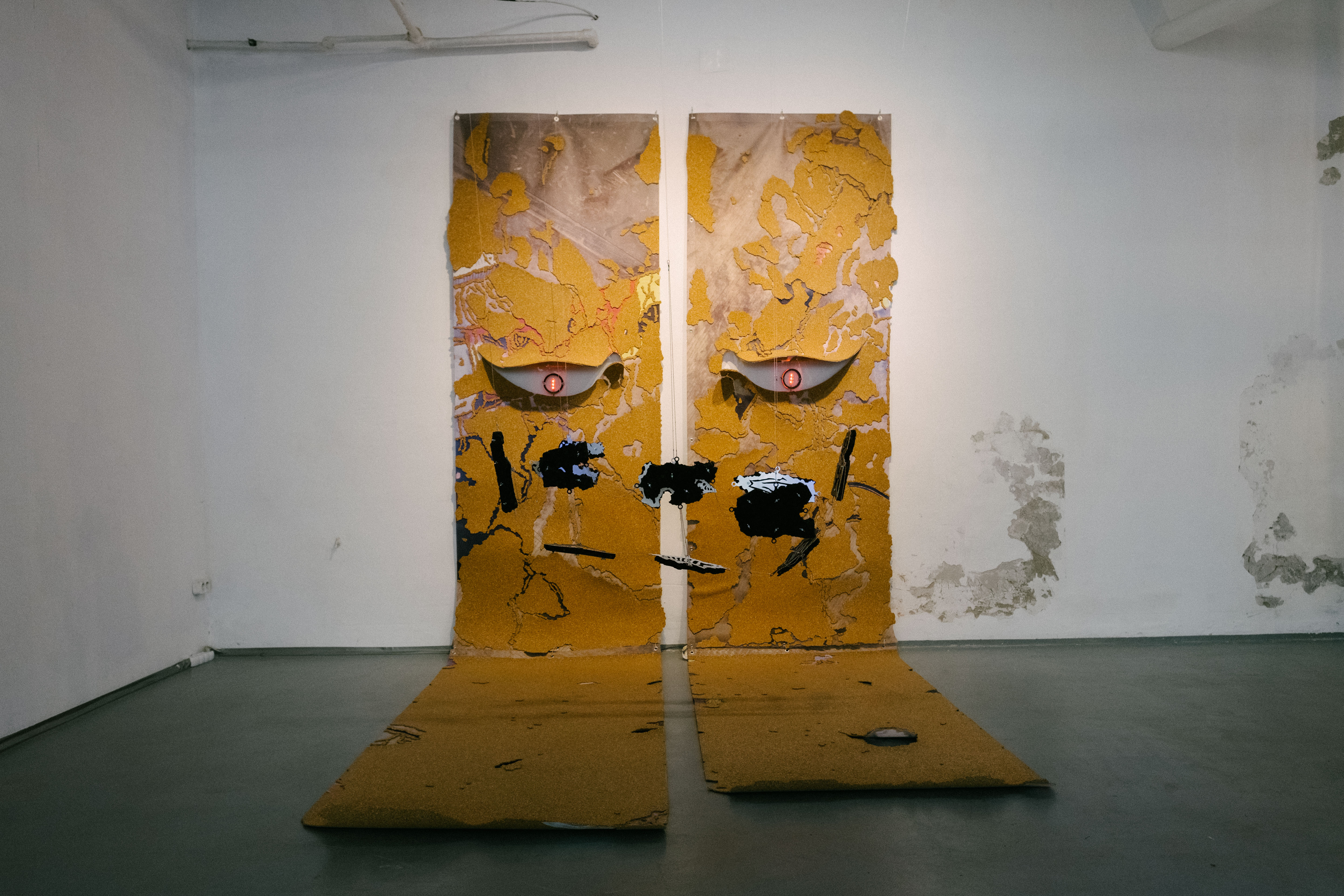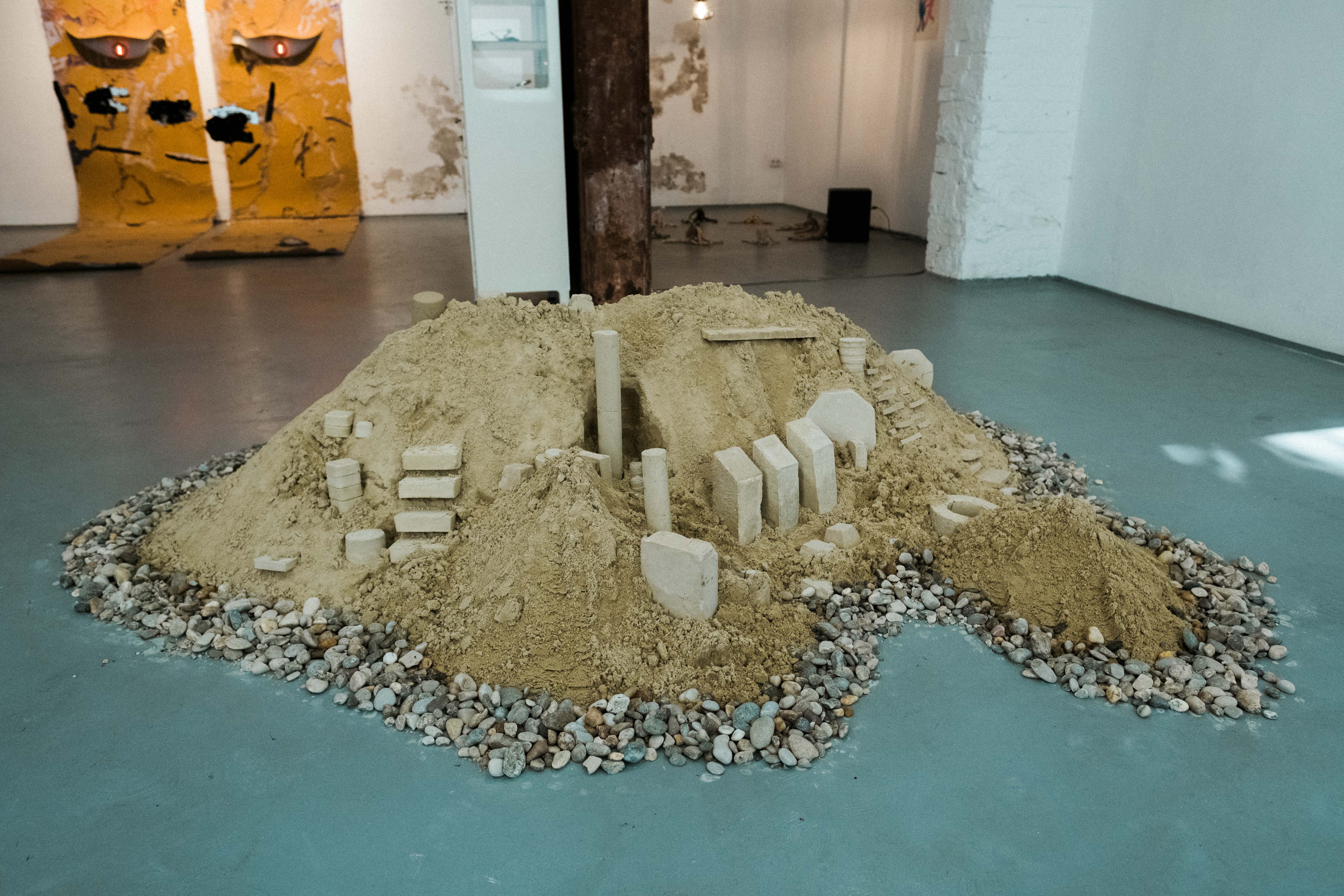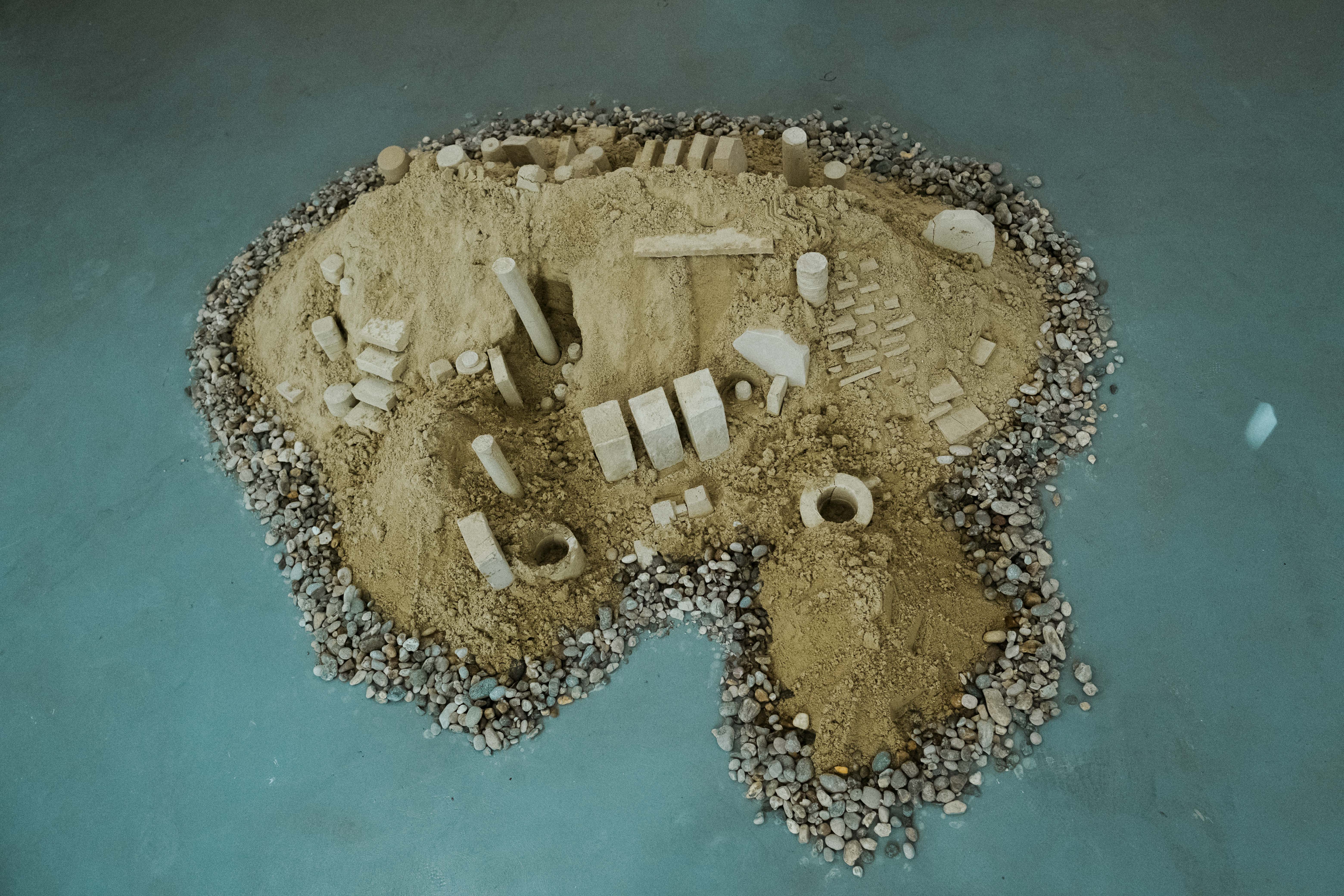Artists: Jakub Choma, Nina Galić, Kata M. Kállai, Dominik Styk, Michaela Švédová, Marie Vařeková
Curators: Lili Agg, Zsófia Kókai
Title: Please, Mind The Gap
Venue: MŰTŐ, Budapest
Photo: Gergely Ofner
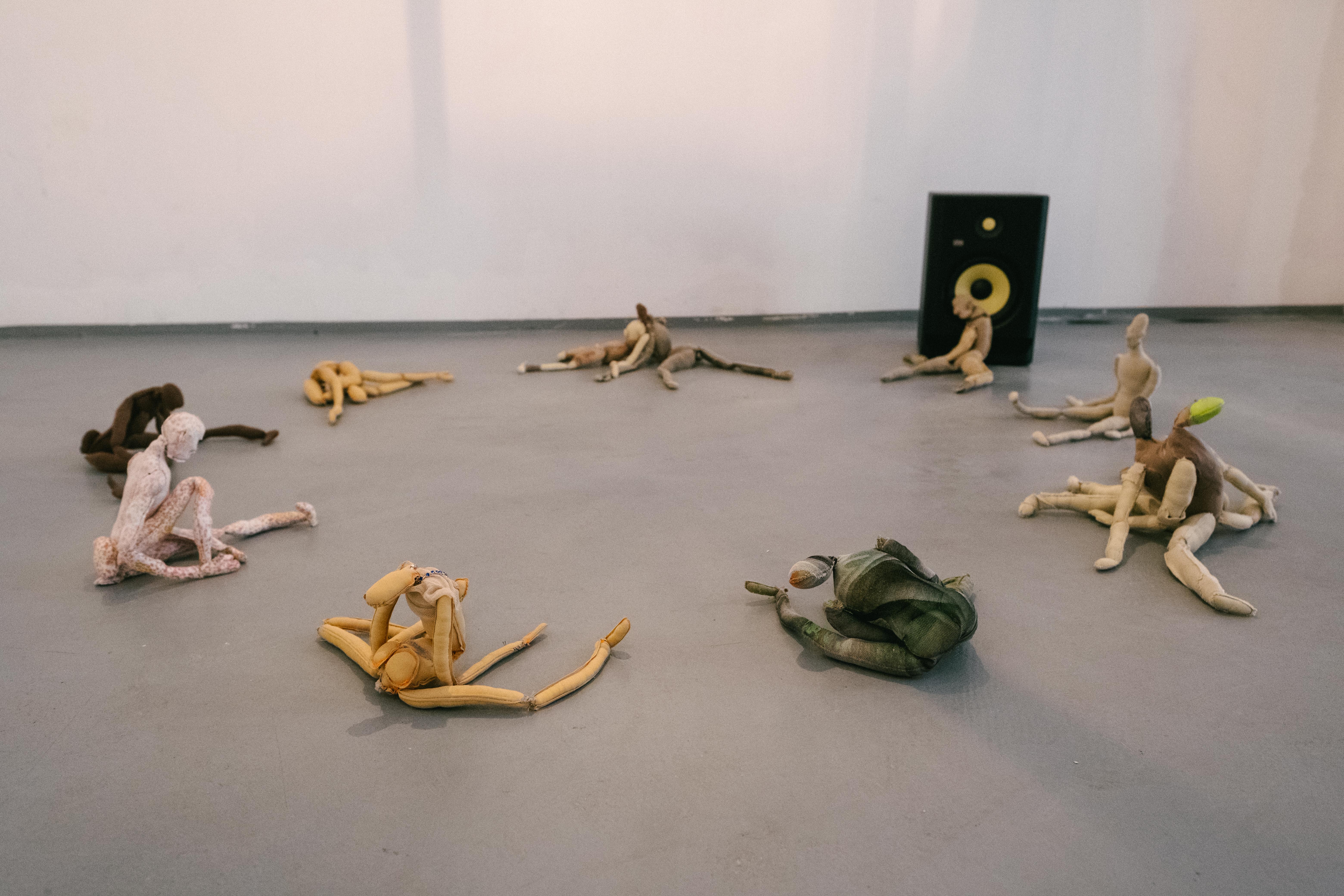
The concept of the exhibition revolves around the topic of transition that refers, on the one hand, to the current state of MŰTŐ as an artist-run gallery and other similar art places and collectives, and in the wider context of the self-organised artistic scene in the CEE region, i.e., the uncertainty and precarious situation of such places. On the other hand, it refers to the ubiquity of transition periods, insecurities, and the reality of post-human utopias and dystopias which are present in everyday situations, with accompanying biomorphic and mechanical aesthetics.
Transitions between stages are usually conceptualized as temporary experiences, more often than not, we are able to recognize the changes only after they’ve occurred. But now, the gaps in continuity are becoming more prominent and prolonged, so we detect these transitional periods at their final stage, as Fukuyama describes. The global crises, such as climate change or the pandemic, the unstoppable development of technical tools and digital platforms, force us to adapt to these unfamiliar situations without pause. It seems that we are continually stuck in a pattern of transition, which inspires feelings of helplessness. The uncertainty of the future generates frustration, which can’t be healed using the well-known tools and traditions of the past. Leaving our comfort zone used to be a necessary, sometimes difficult aspect of change. At our present, it’s a basic condition.
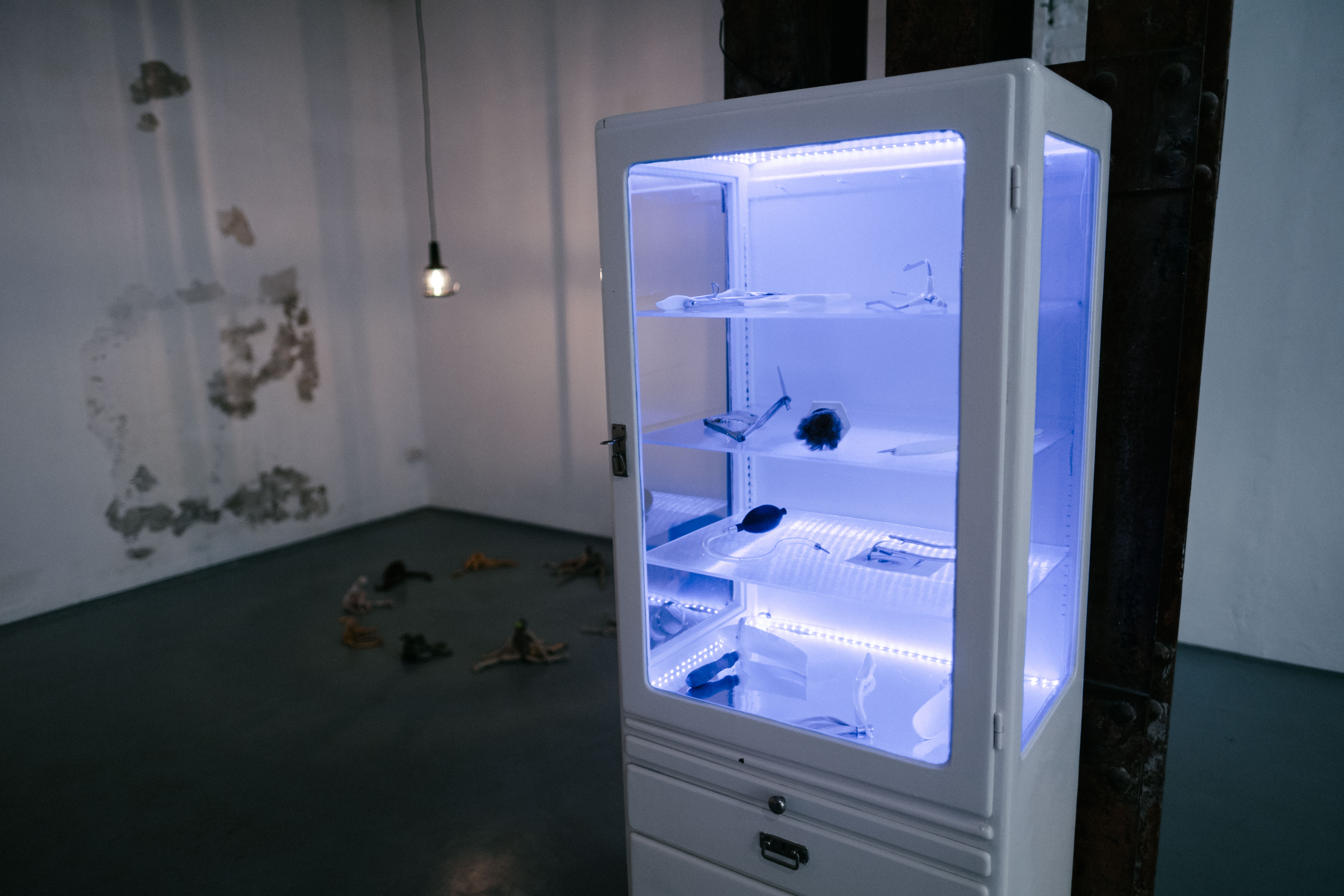
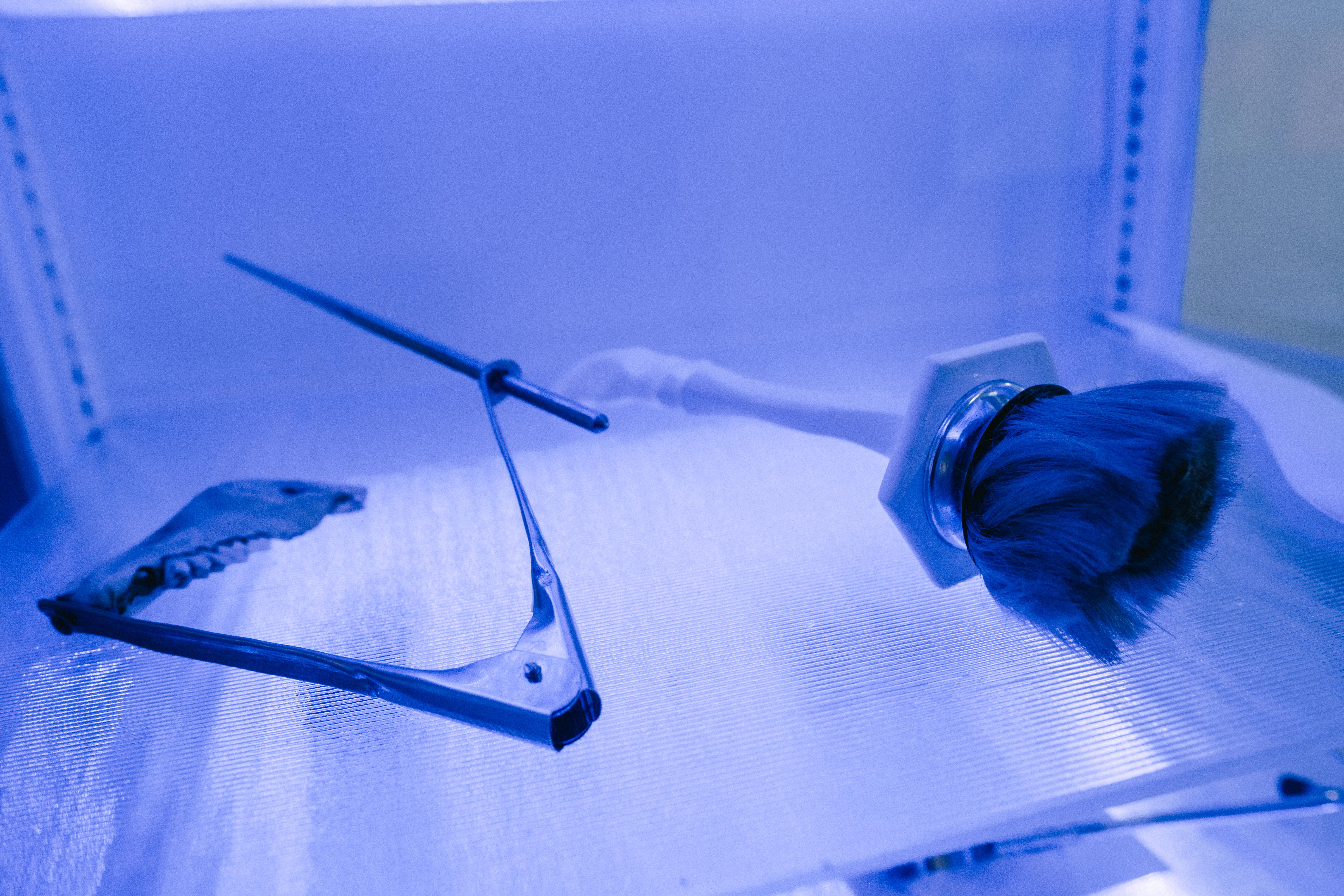
Please, Mind the Gap! presents different ideas of transition through the works of artists representing the four countries participating in the ALTERUM project.
The artworks of Nina Galić are non-functional tools. The artist invites us to participate in a thought experiment related to the transformation of our bodies. Her works remind us of medical tools from the past, however, their aim or function haven’t yet been clarified.
Jakub Choma reflects on the permanent transition between reality and digitality. In his works, he focuses on the adaptation of human thinking and seeing to the virtual world, and parallel to this, the elimination of the human body’s physical existence.
Kata M. Kállai: The House of Power, 2021 (installation, sand, various material)
Kata M. Kállai uses the materiality of sand to represent a transitional state. The installation includes a fossil-fuel power plant which, during the course of the exhibition, transforms back into organic matter due to the effects of erosion. The artist analyses the self-defence mechanisms of nature alongside the climate change acceleration by human activity, highlighting the fragility and mortality of humankind.
The theatrical, performative sound installation by Crying Orchestra (Dominik Styk, Marie Vařeková, and Michaela Švédová), offers the act of crying as a unique human behaviour with which to create new rituals for contemporary society. Crying can act as an agent of relief, as the physical output of emotions like anger, sadness, or sometimes happiness.

